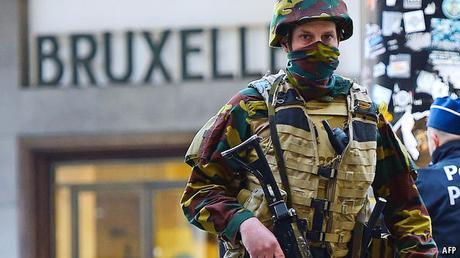
WHEN the leaders of Belgium and France announced the arrest of Salah Abdeslam on March 18th, they made sure not to sound too triumphant. Mr Abdeslam was Europe’s most-wanted terror suspect; he is believed to have been the Islamic State (IS) logistics chief behind the attacks that killed 130 people in Paris in November. But he had evaded a police dragnet in Brussels’ Molenbeek district for four months. That suggested shoddy Belgian police work and a deep and dangerous IS network. On March 21st Jan Jambon, Belgium’s interior minister, warned that terrorists might strike in response. The next day they did, carrying out suicide attacks at Brussels’ Zaventem airport and in a downtown metro station.
The strikes showed the same worrying sophistication as those in Paris. At the airport two jihadists, later identified as brothers, set off bombs in the departure lounge, killing at least 11 people. (Police found and neutralised another bomb; as The Economist went to press, they were searching for a third attacker identified as Najim Laachroui, also linked to the Paris attacks.) The bomb an hour later in Maalbeek metro station…
The Economist: Europe

